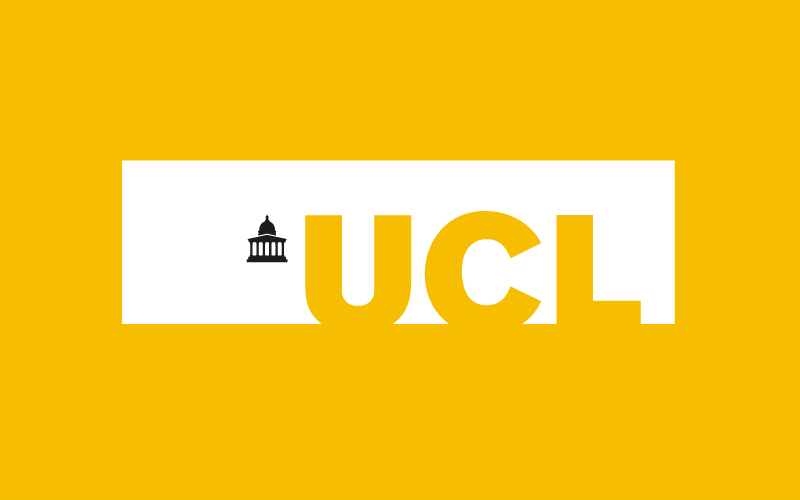University spinouts continue to make an impression on the business landscape, securing millions during funding rounds and getting investment from some high-profile venture capitalists.
But which institutions are faring the best? Well, the ones with the highest number of spinouts. In fact, over half of spinouts (52.3 per cent) originated in the top 10 academic institutions.
With the help of the Beauhurst Spotlight on Spinouts 2024 report, we’re taking a look at ten of the best – and how they create successful spinouts.
Read on for the full list or jump straight to your preferred institutions.
- University of Oxford
- University of Cambridge
- Imperial College, London
- University College, London
- University of Manchester
- University of Bristol
- Royal College of Art
- University of Edinburgh
- Swansea University
- Queen’s University, Belfast
University of Oxford

Total number of spinouts since 2011: 210
The University of Oxford’s spinouts collectively raised £2.6 billion in 2024, an impressive 34 per cent increase on 2023.
What’s more, 24 per cent of Oxford’s spinout founders are female, which is well above the national average.
The life sciences sector is popular, with 53 pharmaceutical companies created to date. Outside of London, Oxford is the prominent local authority for AI spinouts with 21 companies.
Why the high rate? Horrocks, founder of, Oxford Semantics Technologies, leads by saying that Oxford is full of talented people, including faculty, postdoctoral researchers and students – making it a fertile ground for ideas and recruitment. The university is highly supportive, too. For instance, faculty can take extended leave of absence to develop spinouts, and Oxford Science Enterprises (OSE) offers direct access to funding. “This means that the founders don’t have to spend all their time looking for funding and can instead focus on developing the technology and the business,” he said. “All this helps to make the Oxford spinout culture very attractive for entrepreneurs and other investors.”
For the quantum computing industry in particular, Oxford has a long and rich history of being at the very forefront of quantum computing research. This precedent of trailblazing in the field makes the university a natural home for some truly groundbreaking ideas that go on to form successful spinouts, according to Chris Ballance, founder of Oxford Ionics. “In fact, it’s still very important to me to stay close to the university. While I primarily focus on my role as CEO of Oxford Ionics, I maintain a position at the university to ensure I am plugged into the latest research and breakthroughs coming out of academia,” he added.
Then there’s the question of starting a spinout as a professor rather than as a research fellow: “I can only speak from my experience as a professor,” said Horrocks. “The obvious difference is job security: a tenured position offers a safety net if things don’t work out. Professors will, of course, also typically have much more experience, more visibility and a more extensive network, all of which can be very valuable in establishing and growing a spinout.”
University of Cambridge

Total number of spinouts since 2011: 149
Most (72.5 per cent) of these spinouts have managed to raise equity, securing £2.38 billion through 390 rounds.
Biomodal, an engineering biology company is just one example. It focuses on developing genome sequencing technologies and has raised £106 million in equities since its inception in 2014.
Imperial College, London

Total number of spinouts since 2011: 124
Imperial College has had the most significant growth in spinout numbers. The 14.8 per cent increase raises its total number of spinouts from 108 to 124 since the last report. A significant 80 of those spinouts have raised equity to a total of £973 million.
The university has a Founders Choice programme, allowing 95 per cent of founders to keep founding equity, offering flexible intellectual property planning, low royalties, plus dilutable and non-dilutable equity options in spinouts.
University College, London

Total number of spinouts since 2011: 89
University College London supports spinouts through its UCL Business. Almost two thirds (65.2 per cent) of the spinouts have secured equity investment totalling £1.63 billion through 172 fundraising rounds.
University of Manchester

Total number of spinouts since 2011: 86
Of University of Manchester’s spinouts, 44 (51.2 per cent) have raised equity, securing a collective £564 million through 115 deals. They’ve made an impressive four exits, made up of two acquisitions and two IPOs.
UoM is the home of graphene and there’s nowhere else with such a concentration of expertise in the science and practical engineering of nanomaterials, according to Alan Beck, head of project management at Concretene. “We took a Tier 1 membership of the GEIC in late 2022, have our own private formulations laboratory and have access to shared, high-end characterisation equipment that you would never be able to afford as a start-up company.
“The location is also amazingly convenient for us, as the GEIC is on the edge of the redevelopment of UoM’s North Campus into the new ‘Sister’ innovation district. We’ve taken space in the Pariser Building (in the University’s old concrete lab, literally across the road) for our materials testing lab, where we’re able to make and test hundreds of concrete cubes per week.” They’re also building a pilot manufacturing facility there, which they’re hoping to launch later in the year.
University of Bristol

Total number of spinouts since 2011: 76
These firms have raised £1.02 billion through 177 equity investment deals.
Rafael Carazo Salas, founder of CellVoyant, moved from Cambridge to Bristol, giving him the ability to fully switch to human stem cells because they saw the potential in what he was doing. They bet on his theory of working with human stem cells without killing them and it allowed him to work fully on one idea: “We get the chance to test ideas that might not seem feasible, but they can work.”
He believes that Bristol punches above its weight and has a thriving biotech ecosystem. The Cambridge ecosystem is very ‘dense’, with a very high concentration of academics and it’s very ‘intense’ – sometimes feeling like there is less space and scope. “Start-ups now have to be set up outside of the city,” he said.
Bristol, on the other hand, has incubators in town and you can walk between them, plus they have direct interaction with the university from the outset – building the infrastructure to foster new businesses. You can be near the university, in town and near a spinout – and the city is growing to meet this demand.
Royal College of Art

Total number of spinouts since 2011: 72
Spinouts from RCA are overseen by university. They have a bespoke negotiation process, customising equity shares according to each company’s specific circumstances and contributions of its founders.
University of Edinburgh

Total number of spinouts since 2011: 66
Eight of these spinouts have led to exits (12.1 per cent), with all of the companies being acquired.
Swansea University

Total number of spinouts since 2011: 57
Swansea’s spinouts have raised £51.9 million through 65 different funding rounds, with the university claiming 5-20 per cent stake in spinout companies.
Queen’s University, Belfast

Total number of spinouts since 2011: 56
Queen’s manages spinouts through its commercialisation office, QUBIS. They start equity negotiations with the equity concept of equal distribution between the founders and the university. It’s based on revision factors such as the team’s past and projected contributions as well as access to knowledge and IP, acknowledging and rewarding value-generating efforts.
Which sectors do well from spinouts?
It depends on what university you’re with, as different institutions have different specialities.
The golden triangle of Oxford, Cambridge and London, for example, feature most heavily in engineering biology spinouts.
It can depend on who provides the funding, too. Scottish Enterprise is a major funder, with 320 equity deals into spinouts between 2015 and 2024 for spinouts that benefit Scotland and its economy.
Should I launch a university spinout?
Any business takes a lot of grit, and a spinout is no different.
Horrocks says that you should only do it if you are passionate about the idea and ready for total commitment. It will certainly involve a lot of hard work, will likely take much longer than you might think, and will typically be something of a rollercoaster ride. “Bridging the gap between a prototype and a product is a massive task – it took us years,” he said. Try to join forces with experienced businesspeople who understand how to set up, run and grow a company, things that academics typically have little experience of. “Oh, and in case that all sounds a bit discouraging, I should add that it will certainly be an interesting learning experience and can also be hugely rewarding,” he added.
Though there’s a level and support and cushioning in a university that isn’t as readily available as when you start a business outside a university, it’s still an enormous undertaking.
“My biggest piece of advice is to surround yourself with exceptional talent from day one and empower them with the tools they need to succeed,” said Ballance. “When you form a spinout, there’s often the sense that you’ve got everything figured out – you have your vision and a clear plan to achieve it. And planning is essential, but plans are useless without the right people around you. You’ll look back in 3-4 years and find that your plans changed and you executed things differently, but you held true to the mission because of the incredible team around you.”
It’s worth thinking ahead to your investors, right at the outset. “To inspire investors you have to a) live the journey (they can smell inauthenticity a mile off), and b) have a clear business proposition and understanding of your market and competitors,” said Beck. He added that investors care less about why it works than that it works, so your pitch deck should feature zero, or near-zero, microscopy and lots of business model. And practice your pitch – a lot.
“Finally, just do it! It can be scary to make the leap from an institution to a start-up but the autonomy and the ability to get things done at speed, while still being able to lean on academic and engineering resources as in the GEIC model, offers the best chance of success for your big idea.”
Carazo Salas takes a very positive view of spinouts – and thinks there should be more of them: “I think people should be able to spin out and go back into academia – this would encourage more people to spin out companies. It’s what you are doing as an academic but applied in a totally different way.”
He adds that founders are very generous and will help you to not make the errors they did. But they’re not always the best people to go to, at least not in isolation. Investors are very ambitious. If you have big vision and academic funders are too slow, you could sell your vision to VCs.
“One sticking point to be aware of is that the stake that universities ask for is quite big – and that’s the same across the UK,” he said. Though he acknowledges that universities used to take a big equity stake even before they were funded which discouraged investors, this has been changing for the better, so it is being addressed.
“We are lucky that we can pitch to two sets of investors – AI and biotech – but it is also about the economy and the contacts the university can allocate.”
Read more
Do universities take too big a stake in spinouts? – Treasury announces review into university spinouts as founders say average 24% stake universities take in spinouts impedes growth
University spinout equity stake to be capped – Currently, the UK average stake a university will have in a spinout is 22.8 per cent






